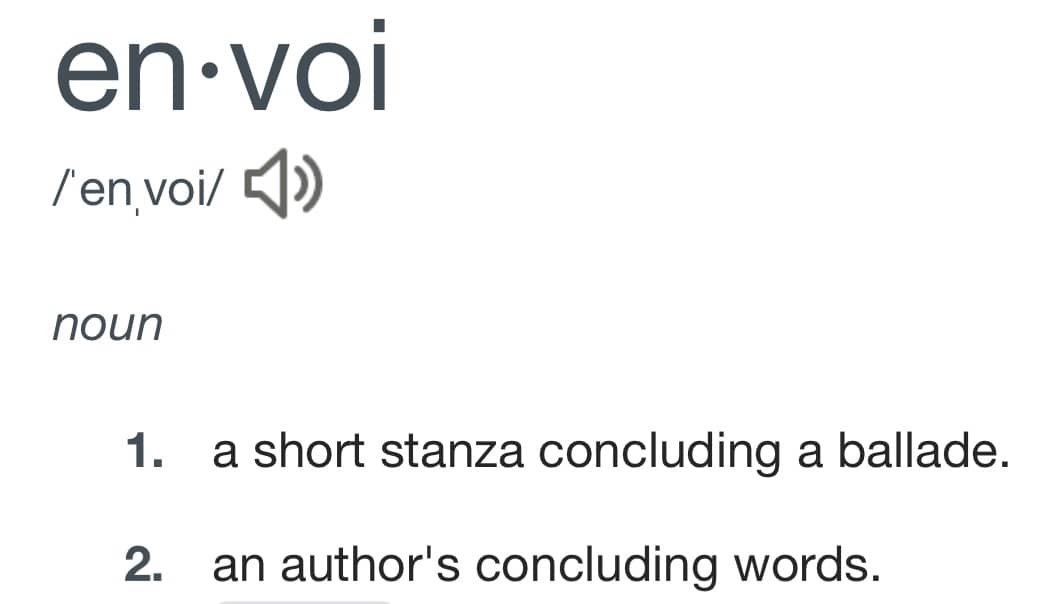An envoy is a person delegated to represent one government in its dealings with another.
THE MOST FAMOUS ENVOY LINE: YOU MUST CHANGE YOUR LIFE

What Does Envoy Line Mean?
Much like an envoy that shares intelligence and a strong directive for the representative of another country an envoy line is an urgent insight for the reader. The literary meaning can include the concluding lines of a ballad but Thomas Merton popularized the idea of the envoy line by saying it accomplished far more than serving as an exit out of a poem. It is more of a mic drop. Merton taught about this device using the poems of Rainer Maria Rilke. Rilke put some his strongest ideas in the last line of his poems. It is fun to seek and underscore envoy lines when you read a poetry anthology. Look for them. An envoy line can feel like an abrupt turn in a poem. It can reveal something unexpected or it can implore the reader to see life differently.
The most famous envoy line arrives at the conclusion of the poem, The Archaic Torso of Apollo.
The poem is about the power of art; For Rilke, to observe a work of art is also to be observed by it, and that sense of mutual evaluation connects to some fundamental ideas about the nature of art, as well as implying something about the consequences of our interaction with art.
Rilke is forced to respond to the imperative that such an experience provides: “you must change your life.” We must be willing to be shaped by our experiences, by our encounters with objects of meaning; we must allow ourselves to be observed, and to account for what this observation tells us about ourselves. Rilke is not appealing to rationality, but rather acknowledging the power of the experience, assuming it to be universal, and commenting on its implications for the observer: art should change you, should compel you to change.
Here is a good example :
Insult by Kay Ryan
You must stop this.
Another example of the envoy line from Sharon Olds
I take them up like the male and female
paper dolls and bang them together
at the hips like chips of flint as if to
strike sparks from them, I say
Do what you are going to do, and I will tell about it.
